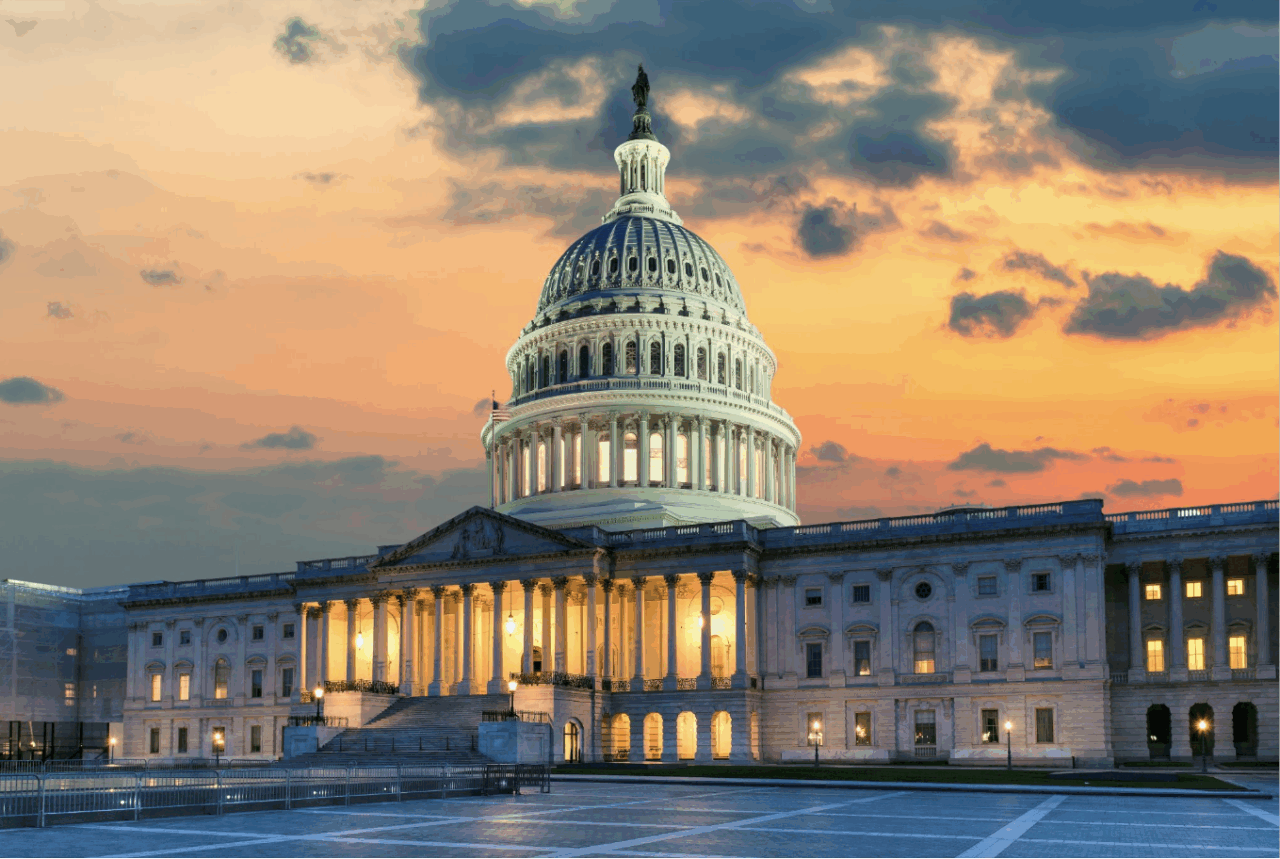Poll: Government Shutdown
This Navigator Research report covers the most concerning consequences of the government shutdown and how to talk about health care costs in relation to the budget.
Blame and Awareness
Reminder: our latest polling found Americans blame Donald Trump and Republicans in Congress over Democrats for the government shutdown by a 10-point margin. News of the shutdown continues to break through, as 74 percent say they have heard “some” or “a lot” about it.
Shutdown Consequences
50 percent of Americans are concerned about the potential harm the government shutdown could inflict on the economy, potentially costing billions of dollars each week and increasing unemployment. Of the shutdown impacts that have already happened, 61 percent are concerned millions did not receive their paychecks on time, including 70 percent of Democrats, 55 percent of Republicans, and 51 percent of independents.
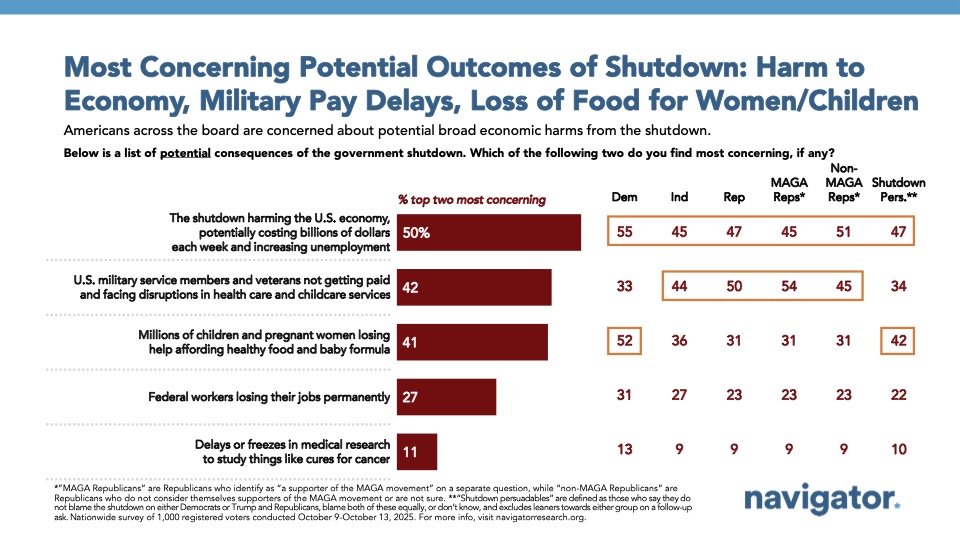
Costs – for health care and for daily goods – are also top-tier shutdown worries. Three quarters are worried about health care costs rising and Americans losing health care coverage (73 percent), including 51 percent who are “extremely” worried. Over two thirds are concerned about tariffs raising costs of everyday goods, including 47 percent who are “extremely” worried.
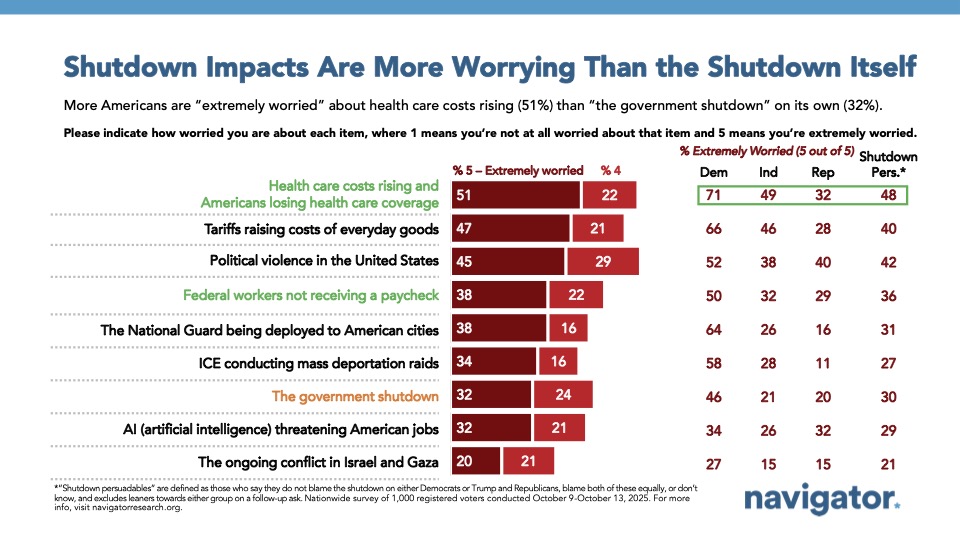
“A 114% increase in health insurance costs” is the most concerning potential outcome of Republicans in Congress’s budget (76 percent concerning, including 60 percent “extremely” concerning), followed closely by “nearly 5 million Americans losing their health insurance completely” (74 percent concerning, including 60 percent “extremely” concerning).
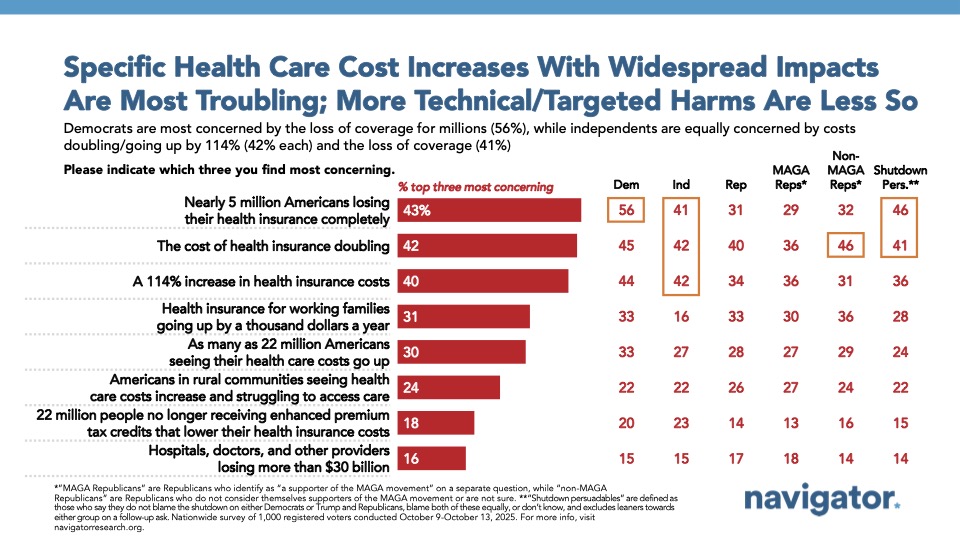
Not only are health care costs one of the most worrying shutdown consequences, it’s seen as a top reason to keep fighting. Americans–across party lines–overwhelmingly think the government should extend health care tax credits and subsidies, regardless of how it’s framed. Seven in ten say we should extend health care subsidies (75 percent) and extend tax credits for health care (72 percent). This is true for a majority receiving health insurance through the government, like Medicare and Medicaid and the VA, as well as those who have private insurance or are uninsured.
Americans say the most important priorities in the shutdown are stopping health care cuts and increases in health care costs, specifically cuts to Medicaid and the Affordable Care Act (41 percent).

It’s essential the shutdown be explained in terms of an outcome – specifically the widely-held view that health care costs should not go up further. A 62 percent majority say they would view Democrats in Congress more favorably if they are able to reach a deal and restore health care, this includes a majority of independents and shutdown persuadables. Democrats in particular say they would view the party very favorably (54 percent) if this were the result.
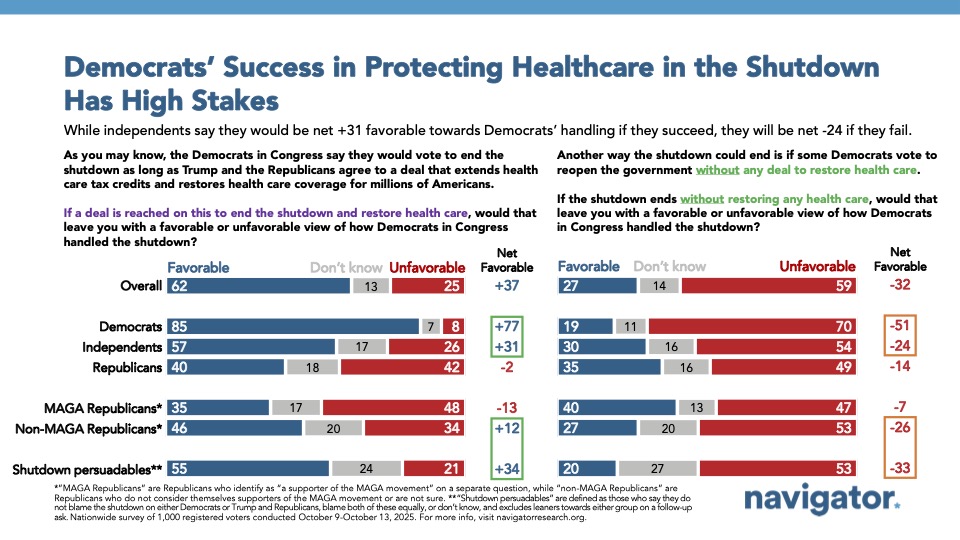
The opposite is true if the shutdown ends without restoring health care, as 59 percent of Americans say they would view Democrats in Congress unfavorably if the government were to reopen without any deal.
